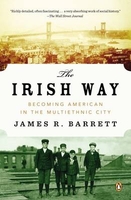-
Home
-
Contributors
-
International
-
Account
-
Information
More From Contributor
- Philip the Fair
- is as cold & silent, as handsome & unblinking as a statue. He governs his realm with an iron h&, but he cannot rule his own family: his sons are weak & their wives adulterous; while his red-blooded daughter Isabella is unhappily married to an English king who prefers the company of men. A web of scandal, murder & intrigue is weaving itself around the Iron King; but his downfall will come from an unexpected quarter. Bent on the persecution of the rich & powerful Knights Templar, Philip sentences Grand Master Jacques Molay to be burned at the stake, thus drawing down upon himself a curse that will destroy his entire dynasty... ...
- negotiating from a position of unassailable strength
- they intended that a stronger Israel would eventually be able to make peace with her Arab neighbours. This has been an elusive hope. Here, Shlaim explores the reasons for Israel`s long reliance on military power in the absence of settlement. His analysis will bring scant comfort to partisans on either side, but it is required reading for anyone interested in this fascinating, troubled l&. ...
- rich, young, & work-obsessed
- makes a detour on his way home to the vast undercroft ...

The Irish Way: Becoming American In The Multiethnic City
people of Irish descent in New York City than in Dublin; more in the United States than in all of Ireland. But in the late nineteenth century, the sources of immigration began to shift, to southern and eastern Europe and beyond. Whether these newcomers wanted to save their souls, get a drink, find a job, or just take a stroll in the neighborhood, they had to deal with Irish Americans.Barrett reveals how the Irish vacillated between a progressive and idealistic impulse toward their fellow immigrants and a parochial defensiveness stemming from the hostility earlier generations had faced upon their own arrival in America. They imparted racist attitudes toward African Americans; they established ethnic ”deadlines” across city neighborhoods; they drove other immigrants from docks,
factories, and labor unions. Yet the social teachings of the Catholic Church, a sense of solidarity with the oppressed, and dark memories of poverty and violence in both Ireland and America ushered in a wave of progressive political activism that eventually embraced other immigrants. Drawing on contemporary sociological studies and diaries, newspaper accounts, and Irish American literature, The Irish Way illustrates how the interactions between the Irish and later immigrants on the streets, on the vaudeville stage, in Catholic churches, and in workplaces helped forge a multi-ethnic American identity that has a profound legacy in the USA today.
This page now acts as a permanent archive for this product. Add more information using the comments box below to ensure it can still be found by future generations.
Use our search facility to see if it is available from an alternative contributor.
- External links may include paid for promotion
- Availability: Out Of Stock
- Supplier: Stanfords
- SKU: 9780143122807
Product Description
In the newest volume in the award-winning Penguin History of American Life series, James R. Barrett chronicles how a new urban American identity was forged in the streets, saloons, churches, & workplaces of the American city. This process of ” Americanization from the bottom up” was deeply shaped, Barrett argues, by the Irish. From Lower Manhattan to the South Side of Chicago to Boston`s North End, newer waves of immigrants & African Americans found it nearly impossible to avoid the Irish. While historians have emphasized the role of settlement houses & other mainstream institutions in Americanizing immigrants, Barrett makes the original case that the culture absorbed by newcomers upon reaching American shores had a distinctly Hibernian cast. By 1900, there were more people of Irish descent in New York City than in Dublin; more in the United States than in all of Irel&. But in the late nineteenth century, the sources of immigration began to shift, to southern & eastern Europe & beyond. Whether these newcomers wanted to save their souls, get a drink, find a job, or just take a stroll in the neighborhood, they had to deal with Irish Americans. Barrett reveals how the Irish vacillated between a progressive & idealistic impulse toward their fellow immigrants & a parochial defensiveness stemming from the hostility earlier generations had faced upon their own arrival in America. They imparted racist attitudes toward African Americans; they established ethnic ”deadlines” across city neighborhoods; they drove other immigrants from docks, factories, & labor unions. Yet the social teachings of the Catholic Church, a sense of solidarity with the oppressed, & dark memories of poverty & violence in both Ireland & America ushered in a wave of progressive political activism that eventually embraced other immigrants. Drawing on contemporary sociological studies & diaries, newspaper accounts, & Irish American literature, The Irish Way illustrates how the interactions between the Irish & later immigrants on the streets, on the vaudeville stage, in Catholic churches, & in workplaces helped forge a multi-ethnic American identity that has a profound legacy in the USA today.
Reviews/Comments
Add New
Intelligent Comparison
We couldn't find anything!
Perhaps this product's unique.... Or perhaps we are still looking for comparisons!
Click to bump this page and we'll hurry up.
Price History
Vouchers
Do you know a voucher code for this product or supplier? Add it to Insights for others to use.


 United Kingdom
United Kingdom
 France
France
 Germany
Germany
 Netherlands
Netherlands
 Sweden
Sweden
 USA
USA
 Italy
Italy
 Spain
Spain








 Denmark
Denmark